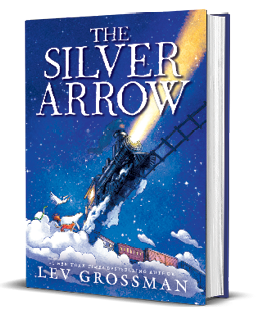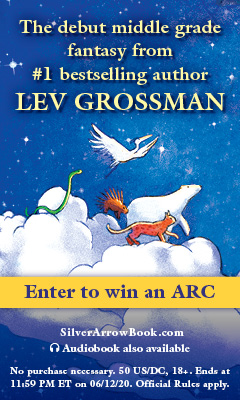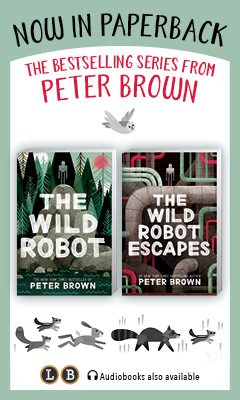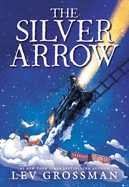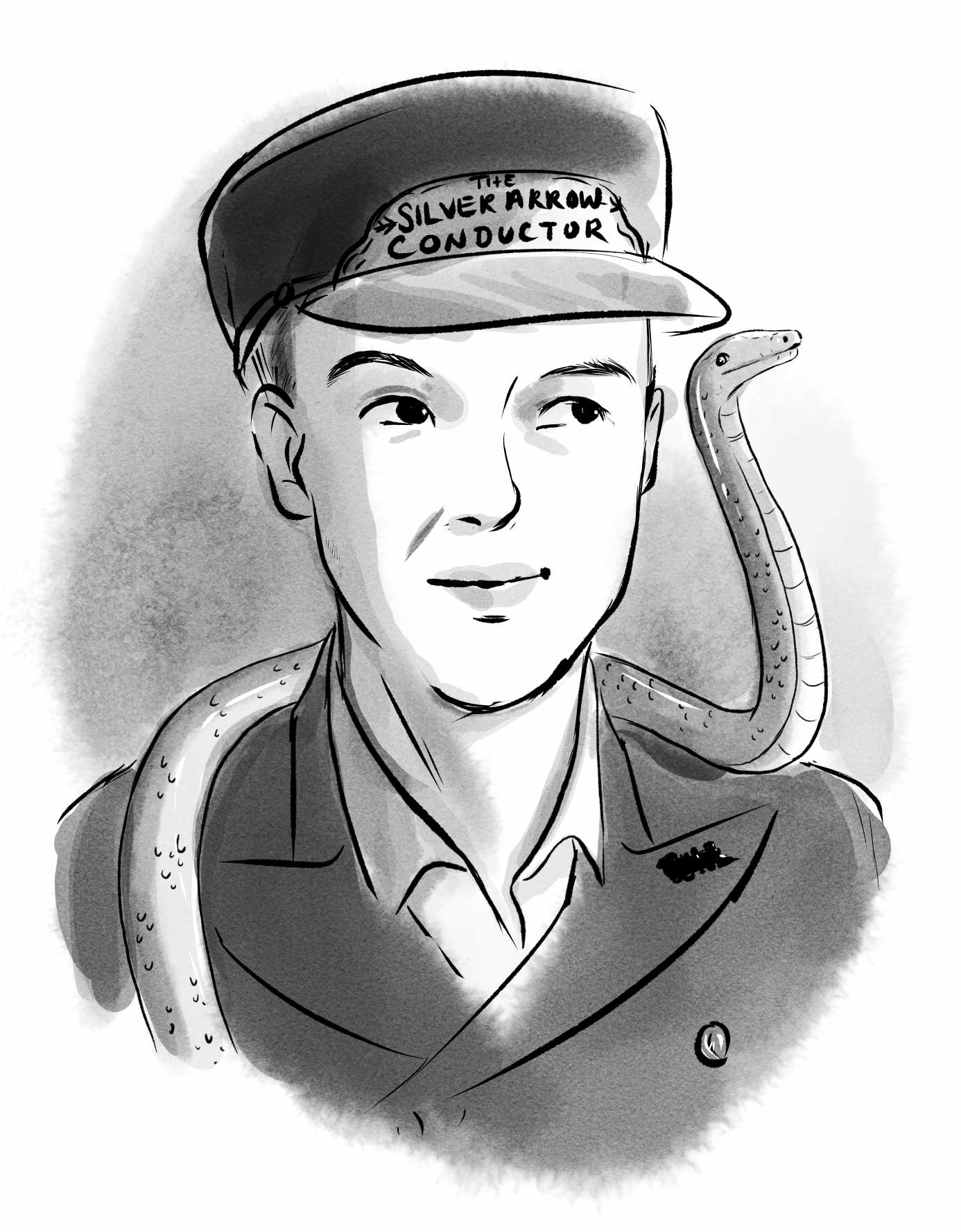The Silver Arrow
by Lev Grossman
Lev Grossman, author of the wildly popular adult fantasy series the Magicians, turns his hand to writing for a middle-grade audience in The Silver Arrow. He overwhelmingly succeeds. Believable characters with complex emotions ground his magical world in reality, while his swiftly moving plot ebbs and flows with moments of adventure and poignancy. Blending fantasy with the all-too-real, Grossman's world is imaginative and conveys a clear conservation message.
Kate is an average kid: she reads a lot, takes piano and tennis lessons, and once in a while plays with her younger brother, Tom. "But some days, as she pounded away at the mahogany upright in the living room or punished the garage door with her forehands and backhands, Kate found herself feeling restless." Kate and Tom's mother and father aren't exactly winning any parenting awards--"parenting just never seemed to be right at the top of their list of priorities"--which leaves Kate with plenty of time to realize that she was "ready for something more exciting. More real. Something that actually mattered." On the eve of her 11th birthday, she writes to her uncle Herbert, a "very rich and totally irresponsible" man she's never met, and asks him to send her a present. To her surprise (because she didn't address the letter or put a stamp on it), a present from Uncle Herbert arrives: "an actual, real, life-sized steam train." Well, an engine and its tender, at least. Uncle Herbert, wearing a banana-yellow suit that matches his insanely slick, tricked-out Tesla, delivers "The Silver Arrow" himself. Kate's parents are livid and begrudgingly allow Kate to keep the train for one week only, then Herbert must take it back.
A few hours later, Tom tells Kate the train is on fire: "There was the tiniest flicker of what looked like warm firelight in the cab of the steam engine." And there are now bright new steel tracks extending through the grass. Upon examining the train more closely, they find white steam swirling around its wheels and the tender filled with coal. Just as Kate wishes the train could really go somewhere, a big lever shifts forward with a clunk, brass wheels start spinning, needles and gauges start stirring and "the whole thing, all 102.36 tons of it, started rolling forward along the tracks as smoothly as a boat across a still pond." It appears Kate will finally get to do something more exciting--which Uncle Herbert mysteriously warns is a huge job that she is not ready for.
After traveling through woods that didn't exist before, the train approaches a station with passengers waiting on the platform. These aren't ordinary human passengers, they're animals--"a few deer, a wolf, several foxes, a big brown bear, some rabbits or hares... and a stripy-faced badger"--holding tickets in their mouths. The animals tell Kate it's been 30 years since a train came through and they'd better head over to the rail yard to pick up some cars because "it's almost too late." Uncle Herbert meets them at the rail yard to help build their train, then sends them on their way with a short set of rules: "Keep the water tank full, and never let the fire go out. And keep an eye out for the twilight star."
What begins as an adventure slowly turns into a mission as Kate and Tom face "invaders," a train low on fuel and near-impossible track placements, all while trying to get the animals safely to their respective stations. It won't be easy, but as the train's passengers say, "there is nothing more terrifyingly effective and resourceful than a human being."
Lev Grossman's The Silver Arrow benefits from the influences of Harry Potter, the Chronicles of Narnia and Charlie and the Chocolate Factory, but he makes it his own with original, entertaining details. The magical train in this story speaks through a typewriter-like messaging system, and one of its cars has the "Aladdin's cave" of candy counters. Grossman also creates grand moments of wonder through his descriptions. For example, when Kate, Tom and their passengers must experience life as trees in exchange for firewood, it's almost as if Grossman has been a tree himself. He describes the seasons in such a way that one completely understands what it feels like, for instance, to lose leaves in the autumn: "as though she'd been wearing a lovely ball gown that had gotten slightly uncomfortable and now she could finally take it off." The author stretches out these instances, suspended moments of calm within the quick-moving plot.
While Grossman discusses animal conservation without being heavy-handed, he doesn't sugarcoat humanity's part in upsetting the balance of the animal kingdom, and he explains the importance of animals staying in their natural habitats. He depicts a polar bear whose station has melted while waiting for the train as "strangely thin for a bear" and "exhausted," and pointedly discusses how animals' environments have been destroyed, pushing species to endangerment or extinction. But there is an encouraging message here, too. While humans are "the original invasive species that created all the other ones," they are "the most successful animal there ever was," and "when human beings want something, nothing gets in their way." If humans can upset the natural balance of things, they can surely do their best to find a new one. Grossman does warn against having a somebody-else-will-solve-the-problem mentality, though. His warnings come in examples of both adults and children too distracted by devices to notice what's going on around them: "It's like they're awake, but they're asleep." Grossman uses his protagonists to set an example of the capabilities of a "good" human, one who can "survive and triumph against all the odds and save everybody."
Reminiscent of classic fantasy, The Silver Arrow is fast-paced, adventurous and inspiring. --Lana Barnes



